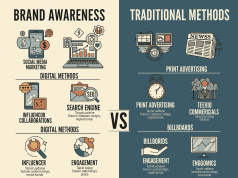As we delve deeper into the digital age, the advertising technology (ad tech) landscape is undergoing rapid transformation. Innovations in data analytics, artificial intelligence (AI), and consumer privacy are reshaping how brands reach their audiences, creating a dynamic environment that requires adaptability and foresight. Let’s explore some of the key innovations shaping the future of ad tech.
1. Artificial Intelligence and Machine Learning
AI and machine learning are at the forefront of ad tech innovation. Brands are leveraging these technologies to enhance customer targeting, personalize ad experiences, and optimize ad placements in real-time. Predictive analytics, driven by AI, allows marketers to analyze vast amounts of data and anticipate consumer behavior, delivering relevant ads at the right time and place.
Key Applications:
- Dynamic Creative Optimization (DCO): AI automatically generates personalized ad creatives based on user data.
- Predictive Targeting: Brands can predict future consumer behavior and preferences, enhancing campaign effectiveness.
2. Privacy-First Advertising
With increasing regulations around data privacy, such as the GDPR and California Consumer Privacy Act (CCPA), ad tech is undergoing a significant shift towards privacy-first advertising. Consumers are now demanding transparency and control over their personal data.
Innovations:
- Cookieless Tracking: Solutions like fingerprinting and server-to-server tracking help marketers reach audiences without relying on third-party cookies.
- Privacy-Enhancing Technologies (PETs): These tools allow data sharing and insights without compromising user privacy, fostering greater trust between brands and consumers.
3. Blockchain Technology
Blockchain is emerging as a game-changer in ad tech by enhancing transparency and accountability in digital advertising. By leveraging blockchain, advertisers can verify traffic sources, combat ad fraud, and ensure that ad spending is effectively tracked.
Applications:
- Smart Contracts: Automatically execute agreements between advertisers and publishers, minimizing disputes and ensuring fairness.
- Ad Fraud Prevention: Blockchain can provide authentic metrics, helping to identify fraudulent activities in real-time.
4. Augmented Reality (AR) and Virtual Reality (VR)
AR and VR technologies are revolutionizing consumer engagement by providing immersive advertising experiences. Brands are increasingly utilizing these technologies to create interactive and compelling ad content that resonates with consumers in novel ways.
Examples:
- AR Shopping Experiences: Consumers can visualize products in their own environment through AR, enhancing the decision-making process.
- VR Brand Experiences: Brands can create immersive worlds for consumers, allowing them to explore products and services in a virtual space.
5. Programmatic Advertising Advancements
Programmatic advertising continues to evolve, making the buying and selling of ad space more efficient. Innovations in this space are enhancing targeting, increasing transparency, and improving overall campaign performance.
Developments:
- Contextual Targeting: Advanced algorithms analyze the context of web pages to deliver relevant ads, bypassing reliance on cookies.
- Real-Time Bidding (RTB) Improvements: Enhanced algorithms are optimizing bidding strategies, ensuring that advertisers get the best return on investment.
6. Voice and Audio Advertising
As smart speakers and voice-activated devices become ubiquitous, voice and audio advertising is gaining traction. This innovation allows brands to engage consumers in a more personal and direct manner.
Opportunities:
- Voice Search Optimization: Brands can tailor their content to be discoverable through voice searches.
- Interactive Audio Ads: These enable listeners to respond to ads through voice commands, creating a more engaging experience.
Conclusion
The future of ad tech is bright, filled with innovations that promise to reshape marketing strategies and consumer interactions. As brands navigate this evolving landscape, embracing new technologies while prioritizing consumer trust and privacy will be essential. The successful integration of AI, blockchain, AR/VR, and other emerging solutions will not only elevate marketing effectiveness but also foster deeper connections with audiences. The ad tech revolution is just beginning, and those willing to adapt and innovate will lead the charge into a new era of advertising.









